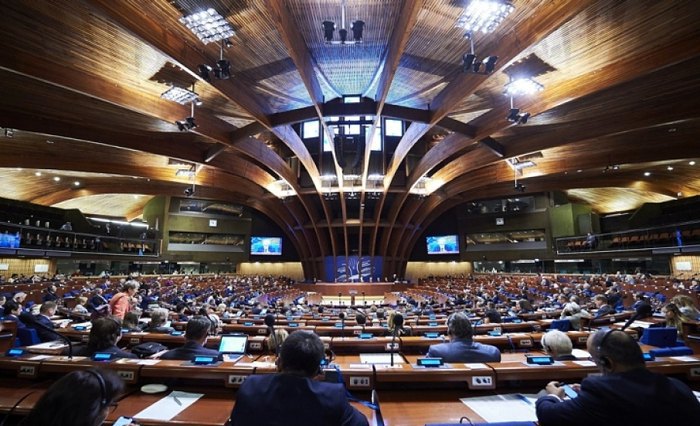
On 26 June 2019, it happened what had to happen: the Parliamentary Assembly of the Council of Europe decided to restore the Russian delegation's rights and bring it back without any conditions, restrictions or consequences.
Unexpected to many, it was the only possible and virtually inevitable development after the defeat in the diplomatic battle at the level of the Committee of Ministers of the Council of Europe. Given the principle of confidentiality, which reliably protects its work from the curious eyes, we can only wonder who and how many times crossed the swords, which alliances have been built and destroyed over the past months, and, eventually, who was the backstabber who opened the gate of the democracy fort to an evil violator of democratic security in Europe.
Let's leave the answers to memoirs and journalists' insides. One thing is obvious: after on 17 May, participants in the Helsinki ministerial meeting said that all member states shall be entitled to participate on an equal basis in the two statutory organs of the Council of Europe, called on delegations of all member states to take part in the June part-session of the Parliamentary Assembly and suggested that sanctions may be dropped, the Russian tide could not be stopped.
It was the dynamic Helsinki in May and not the cute and sleepy Strasbourg in June which became Ukraine's Waterloo. And the point here is not that our Waterloo occurred without Napoleon, who did not reach it deliberately, entrusting its marshals with the protection of the yellow-and-blue colours, and not that his physical presence could or could not radically change something. At least his public readiness to fight till the end would dispel an illusion that Ukraine surrendered the ministerial meeting "without a single shot", just like it surrendered Crimea "without a single shot". The fact is that after the Helsinki ministerial meeting, the outcome of the PACE review of the issue of Russians' return was clear and decided in advance.
Having crumpled European values, breaking through the borders of common sense and senseless paper spam of 226 amendments, the "red car" triumphantly pulled into the session hall and began to establish a revolutionary order "by its image and likeness" with the ardour and insensibility of 1917 zealots. Once they tried to nominate scandalous Leonid Slutsky, marred by sexual harassment allegations, for PACE vice-speaker, then they bluntly refused to pay contributions to the Council of Europe budget for the years when the Russian delegation did not participate in the work of the Assembly, although earlier it had promised to pay off the debt in full. The respected European parliamentarians, who were busy pressing the buttons for the Russians' return until midnight, failed to notice how the European nations came to know sexism, rudeness, political hypocrisy and fraud, which are inherent in Russian politics.
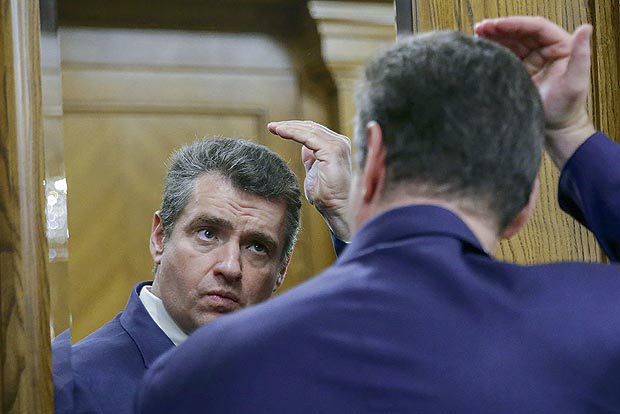
Along with the Komsomol-criminal core of Russian MPs and the aggressive and totalitarian nature of the Kremlin's political regime, the Russians' return to the PACE has once again demonstrated the fragility of anti-Russian sanctions and, in general, of sanctions as an instrument of international coercion.
Sanctions have long been the "universal" response of Ukrainians to all the pain and atrocities committed by the Russians. Ukrainian politicians and high officials are often heard calling for their introduction, amplification or expansion. Any escalation in Donbas, another wave of repressions against Crimean Tatars and Ukrainians in occupied Crimea, a new round of a trade or gas war between the Kremlin and Ukraine naturally give them a reason to ask Western partners to impose additional sanctions on Russia. However, the paraphrased appeal of proletarian poet Mayakovsky "More sanctions, good and different!" is increasingly less heard. Hardly anyone is still willing to ride the sanctions carousel or pay for this amusement.
In fact, the degradation of the sanction mechanism is due not to "fatigue from Ukraine" or the ineffectiveness of sanctions as such. The Ukrainian issue has firmly entered the global and European agenda, and everyone understands that peace and stability on the European continent is unattainable without a solution to it. The destructive effect of sanctions on the Russian economy, especially on its defence industry, does not require proof. Statistics speak for themselves.
The main reason for the degradation of this foreign-policy lever is its own nature. After all, sanctions are a system of coercive measures that can be applied collectively or individually to offenders who have committed international wrongdoing. The key word here is "can". States, groups of states, international organizations resort to them independently and at their own discretion. There is one principle: the adoption of such a decision is their prerogative, which they can use or hold back.
In the absence of a legally binding commitment, political, moral and ethical categories take centre stage. Even if a state or an international organization showed goodwill and imposed sanctions on the perpetrator, there is no guarantee that after a certain period of political expediency multiplied by a favorable international environment, the system of values on which its readiness to punish is based will not erode. And in fact, it is not so important what factors led to the erosion of this system. What is more important is the result: having lost motivation and value guidelines, the entity, which once imposed sanctions easily and decisively, can abandon them with the same ease and resolve. This was actually the case with the Parliamentary Assembly of the Council of Europe.
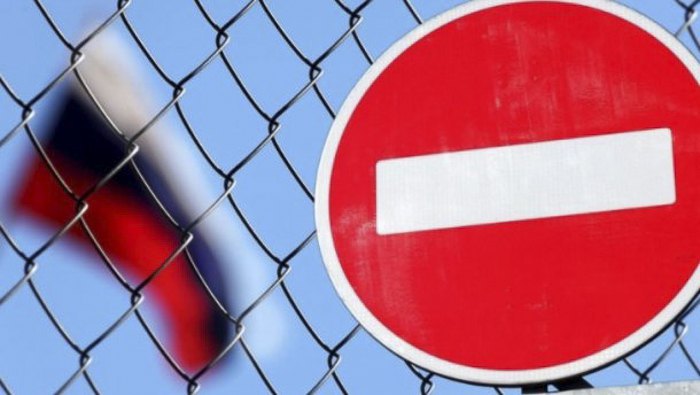
Sanctions are a weapon of the strong. Strong from the military and political, economic, moral or religious point of view. Being an undisputed authority in the European continent, in 2014 the PACE found guts to rebel against the tyranny of the Russians and became the first European institution to impose sanctions against them. At the same time, as soon as in 2019, having been exhausted by the confrontation with Russia, financially drained, frightened by an institutional crisis due to the "illegitimacy" of the secretary-general and judges of the European Court of Human Rights, who were elected without Russia's participation, disoriented by false humanitarian motives, the Assembly abolished its own sanctions or rather did not introduce them again after a long pause.
It is senseless to take offence with European parliamentarians because this is how the sanction mechanism works. After all, we do not get offended by the fact that snow falls in the winter and it is hot in the summer. It is counterproductive to react to the situation by withdrawing from the Council of Europe or not paying membership fees. This organization continues to be an international platform where Ukraine must protect its legal rights and interests. Leaving it to the enemy's discretion means denying itself the opportunity to participate in the formation of a pan-European policy. And if you do not form it, they form it for you and you are only faced with the fact. It is dangerous and unrealistic to threaten to dismiss the Normandy format or make the Minsk process "die". There is no direct connection between them and the PACE. Consequently, this would be perceived as if Ukraine was looking for a reason to torpedo the peace process in Donbas.
Certainly, Russia's unconditional return to the PACE is a serious foreign policy challenge for Ukraine, calling for an adequate response. The question is what should it be? If the sanctions are lifted and given the changes made to the sanction mechanism, the introduction of the new ones is a slim prospect, so what can Ukraine put against the "Russian boot" in Strasbourg?
Obviously, local diplomats have already started working on this case. The Foreign Ministry said that it was preparing a set of concrete measures in response to the Assembly's decision. We have recently seen some of them in action, such as the cancelled invitation to PACE observers to monitor a snap parliamentary election in Ukraine. Some are only being developed within the framework of the announced "tactic of a thousand cuts". At the same time, no matter how creative were the proposed steps and regardless of their poetic name, they should all have a common denominator and rely on one foundation. A natural factor that can play such a unifying role is the policy of non-recognition.
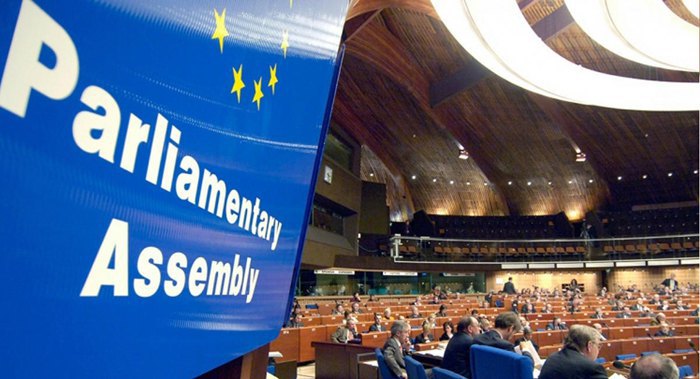
The Council of Europe has been and remains the only international organisation where Ukraine and the Russian Federation are both members, where the policy of non-recognition of the annexation of Crimea and Sevastopol by Russia was introduced not only at the level of parliamentary-representative bodies, but also at the intergovernmental level. The relevant resolution of the Committee of Ministers of the Council of Europe was adopted on 3 April 2014 after a three-day debate. In particular, this resolution declares that "the illegal referendum held in the Autonomous Republic of Crimea and the city of Sevastopol on 16 March 2014 and the subsequent illegal annexation by the Russian Federation cannot form the basis for any alteration of the status of the Autonomous Republic of Crimea and the city of Sevastopol".
Conclusions of the Venice Commission became a serious argument in favour of this resolution. On 22 March 2014, in response to the Council of Europe secretary-general's inquiry, it passed the documents CDL-AD(2014)002 and CDL-AD(2014)004. The first one concerned the compatibility of the decision taken by the Supreme Council of the Autonomous Republic of Crimea in Ukraine to organise a referendum on the "reunification" with Russia or restore Crimea's 1992 constitution with constitutional principles. The second one concerned the compatibility of Russia's draft federal constitutional law No 462741-6 of 28 February 2014, more known as the "law on the annexation of Crimea".
In both cases, the Venice Commission found that the process of the unilateral withdrawal of Crimea from Ukraine and its accession to the Russian Federation in the status of a separate entity does not comply either with Ukrainian legislation nor with the fundamental principles and norms of contemporary international law or with democratic standards for holding referendums that were developed within the framework of the Council of Europe and the OSCE. Accordingly, these decisions are null and cannot have any legal consequences.
It is important to realise that, unlike the PACE, which has consultative status and is only used as a convenient platform for discussing pan-European issues, the Committee of Ministers is the governing body of the Council of Europe, authorised to act and make decisions on its behalf. Decisions it passed, which determine the internal functioning of the organisation, are mandatory. The decision not to recognize Russia's annexation of the Autonomous Republic of Crimea and Sevastopol is one of them. It obliged all other Council of Europe bodies to adhere to the policy of non-recognition and imposed serious restrictions on their work.
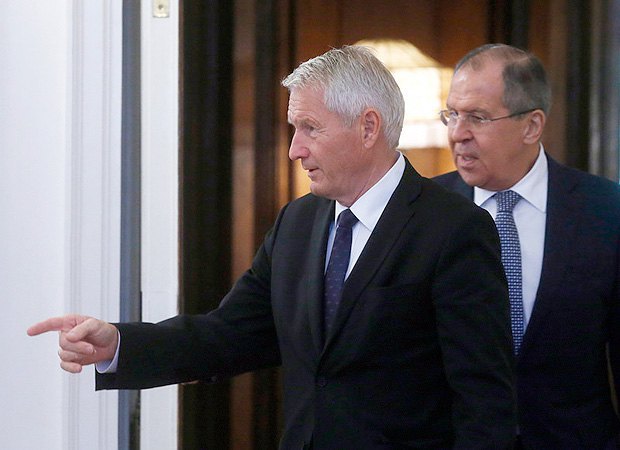
In order to implement the decision and specify the framework of these restrictions, the Private Office of the secretary-general of the Council of Europe, Torbjorn Jagland, prepared and distributed among the officials a special Memorandum of Understanding describing the guidelines of the organisation's activities in Crimea (hereinafter referred to as the "Memorandum"). Dated 16 July 2014 and signed by the head of the Private Office of the secretary-general, Berge Bjorn, this document remains relevant today.
The provisions of the Memorandum apply to officials of all bodies, monitoring mechanisms, secretariats of extended and partial agreements and other institutions that can work and act on behalf of the Council of Europe. Paragraph 4 orders them to refrain from "any action, step or statement that might be interpreted as recognising the annexation of the Autonomous Republic of Crimea and the city of Sevastopol by the Russian Federation". Paragraph 5 allows them to render assistance to the residents of Crimea for the purpose of protecting human rights only "in full compliance with the relevant provisions of Ukrainian legislation".
The memorandum also describes cases when cooperation with representatives of the occupying administration in Crimea is inevitable. In such cases, the emissaries of the Council of Europe must clearly demonstrate that all their efforts are directed only at the direct benefit of the population of the territory. According to Paragraph 6, all correspondence or reporting activities of the Council of Europe concerning Crimea should contain a reservation which, among other, indicates that the activities of the Council of Europe "cannot be interpreted as recognising bodies exercising de facto jurisdiction or an amended status of this territory ".
Paragraph 8 of the Memorandum, which regulates the monitoring of Council of Europe activities in the occupied peninsula, is worthy of attention. It states that the activities of the Council of Europe's managing, working and expert bodies within their approved mandates should refer to the territory of the Autonomous Republic of Crimea and Sevastopol exclusively as an integral part of Ukraine. Visits should be made at the invitation or with the permission of the Ukrainian authorities and in strict observance of Ukrainian legislation. Any recommendations, reports or assessments of the situation in the Autonomous Republic of Crimea and Sevastopol should be prepared within the framework of Ukrainian monitoring/evaluation cycles and addressed to the competent authorities of Ukraine.
The Memorandum also describes the procedure for project cooperation between the Council of Europe and Ukraine and the Russian Federation, taking into account the fact of the temporary occupation of the Crimean peninsula. In accordance with Paragraph 9, any project concerning Crimea may be implemented with the involvement of the organisation only in the framework of cooperation with Ukraine. Projects of cooperation with the Russian Federation cannot include Crimea under any circumstances.
By its very nature, the Memorandum of the Secretary General's Private Office is a universal matrix that reveals the content of the non-recognition policy that can be applied to any body or any sphere of activity of the Council of Europe, in particular, to the PACE. For example, it applies to the composition of the Russian delegation to the Assembly.
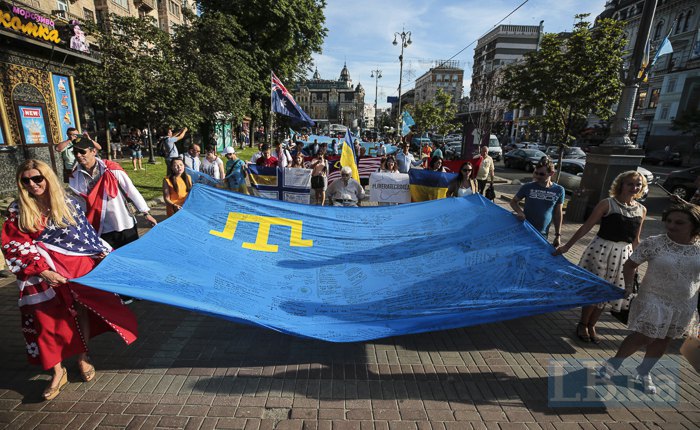
Based on the 3 April 2019 decision of the Committee of Ministers and the Memorandum, the so-called "elections" held by the occupying authorities in Crimea are illegitimate, and the "officials" elected in these elections are illegitimate. Consequently, neither the mandate of Russian State Duma MPs elected in the multi-mandate constituency, which includes temporarily occupied Crimea and Sevastopol (on party lists), nor the mandate of MPs elected in single-seat constituencies of the so-called "Republic of Crimea", nor that of the senators delegated by these "subjects" to the Federation Council can be recognised. The doors of the Palace of Europe, the Agora, international conferences, forums or other events held under the auspices of the Council of Europe must be closed to such pseudo-officials as S. Tsekov, O. Kovitidi, R. Balbek or N. Poklonska once and for all.
The only ones who, with a greater or lesser degree of legitimacy, can represent the Russian parliament in the PACE are deputies of the Russian State Duma elected in single-seat constituencies or senators from Russian regions, except for the occupied territories of Crimea and Sevastopol. Guided by this understanding, the PACE Standing Committee on 26 June inquired the Venice Commission about the status of Russian State Duma deputies elected on party lists. The answer to this question, taking into account the Venice Commission's conclusions of March 2014, can only be unambiguous: relaunch a mechanism of challenging the rights of the Russian delegation in the PACE on procedural grounds with new energy.
At the same time, Ukraine should not stop at this. It is necessary to initiate before the Committee of Ministers, the newly-elected secretary-general of the Council of Europe and the ECHR Secretariat a kind of "vetting" of diplomats from the Russian Permanent Mission, Russia's representatives dispatched to subsidiary or expert bodies, as well as international officials working in the secretariats of the Council of Europe and the ECHR under the quota of the Russian Federation. The vetting criterion should be a policy of non-recognition.
For example, if these officials submitted to the Council of Europe any documents (passports, certificates of registration of civil acts, diplomas, etc.) issued or certified by bodies of the non-recognised federation subjects such as the "Republic of Crimea" and "the city of Sevastopol", or were sent by "state bodies, enterprises, institutions or organisations" of these entities, they must be declared personae non gratae, their accreditation must be revoked, membership in expert or working bodies terminated, job contracts annulled. Proceeding from the policy of non-recognition, the Council of Europe is obliged to stop any cooperation and cut any connection with persons who have not passed the "Crimean vetting".

If Ukraine does not take a proactive stance, the "red car" will only continue its offensive in the Council of Europe and the PACE will not stop at lifting the sanctions regime. The Russians are well aware of their goals. The most important of them is the legitimisation of the annexation of Crimea and Sevastopol. They openly "do not give a damn" about "restoring dialogue and cooperation to solve common problems in Europe", which they mentioned as a reason for their return to the Assembly's session hall. Now they do not even try to keep a friendly face. In particular, the deputy speaker of the Russian State Duma, Petr Tolstoy, said in an interview with RFI that it is quite probable that "deputies elected from Crimea" will take part in meetings of the Assembly as part of the Russian delegation, while Leonid Slutsky, head of the State Duma Committee on International Affairs, said on the air of Rossiya 1 TV channel that the rejection of amendments on Crimea by the Assembly was "the first significant step towards the recognition of Crimea as Russian by Council of Europe countries".
Certainly, the 3 April 2014 decision of the Committee of Ministers and the Memorandum of the Private Office of the Secretary-General of the Council of Europe are not exhaustive and cannot be considered a panacea for all Ukrainian troubles. Given the steady tendency towards normalising relations with the Russians in many areas of international life, one should not idealise these documents. However, provided that they are properly used and combined with other elements of the policy of non-recognition, Ukraine can achieve significant results and block the activities of the Russians in the PACE and in other Council of Europe bodies, regardless of whether they are present there or not.
Non-recognition policy is a legal commitment of states and international organisations. It cannot be sacrificed to the gods of the political situation as easily as sanctions. It cannot be carelessly dumped because it will be followed by your independence and sovereignty. It weighs considerably more than another diplomatic protest. Unlike international court and arbitration decisions, it does not take years. All you need to do is start exercising it here and now. Why not today?!
The views expressed in this article reflect the author's point of view and should not be interpreted as an official position of the Ukrainian Foreign Ministry.







